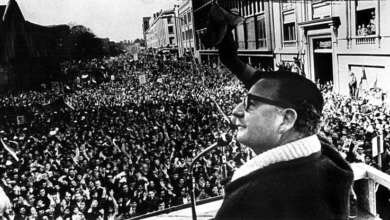After multiple delays in presidential elections, Movement Towards Socialism (MAS) presidential candidate and ex-Minister of Economy Luis Arce Catacora was elected by over 52 percent of the popular vote according to preliminary estimates. The crushing victory for MAS deepened as the party won a majority of seats in both chambers of the legislature.
MAS is the party of Evo Morales, the democratically-elected president who was overthrown in a U.S.-backed police and military coup last year. Morales, a prominent union leader, was the first Indigenous president in Bolivia’s history. His administration ushered in a process of deep progressive change called the Democratic and Cultural Revolution that empowered the country’s working class and Indigenous majority. Last night Morales declared triumphantly, “We’ve recovered our democracy.”
Leonardo Flores, an international election observer, spoke with Liberation News about the mood in the country, “Last night’s results led to tears of joy, but also tears of sorrow in remembering all the lives lost over this past year and all the damage done by this fascist coup regime. But overwhelmingly the mood is one of jubilation and relief. La Paz is incredibly calm this morning.”
The Bolivian people stood up to vote for sovereignty and regain their democracy. This is a humiliating blow to the far-right regime of coup-installed president Jeanine Áñez and is being celebrated by the left across Latin America.
People’s struggle restores democracy
In the lead up to this past weekend’s elections, the coup regime pulled out all the stops to prevent the people from exercising their right to choose their country’s leaders. In multiple instances, they attempted to ban the MAS party from participating by removing their candidates altogether or individually with bogus criminal proceedings. The campaign of Arce and MAS was consistently persecuted, with offices and radio stations attacked.
Additionally, the election was delayed. In March, the pretext for the postponement was the public health emergency of COVID-19. Another delay was attempted in late July and early August but the Bolivian people took to the streets, organizing blockades and marches to demand a binding official date for elections. This pressure from below secured the October 18 elections.
The weeks and days prior to the election began saw a profound militarization of cities to create a fog of uncertainty and potential chaos. Military and police were deployed while social media was flooded with images of thousands of soldiers marching up and down streets.
Coup regime minister Arturo Murillo threatened international observers with jail time. He also threatened to take harsh action against anyone who protested against electoral fraud. This rhetoric was not taken lightly, as the coup government had earlier in its tenure committed massacre of its opponents that left dozens dead. The most infamous of these took place in the towns of Sacaba and Senkata.
As international observers began to arrive, some were harassed while others were outright detained. Although later released, Federico Fagiolo, an official member of the observer mission by the Argentinian Congress, was arrested in El Alto airport two days before the election.
On the day of the election, in complete contrast to the mood created by the coup government, the Bolivian people peacefully filled the lines of voting booths from the cities to the countryside.
As of Monday morning the main opposition candidate Carlos Mesa, right wing Secretary General of the Organization of American States Luis Almagro, and coup President Añez all congratulated MAS and conceded defeat.
Challenges ahead
After 11 months of mismanagement by an unelected coup regime, the Bolivian people are faced with huge challenges. The government of president-elect Arce faces an economic and public health crisis
It is estimated that about 1 million Bolivians fell into poverty since the Añez regime took power. During Morales’ presidency, the country boasted some of the highest achievements in the region in terms of economic growth and social development. Arce has announced that among his first measures as president will be the payment of “bonuses against hunger”.
The production of hydrocarbons, natural gas, lithium and other natural resources came to a standstill. MAS has identified the reactivation of the country’s economy as a main initial goal. The nationalization of these resources was a cornerstone of the progress made under Morales.
One of the many major disasters under the coup regime was its complete failure to effectively fight the COVID-19 pandemic. For example, it purchased half-built and non-working respirators, did not formulate an official national plan of action, nor did it acquire sufficient person protective equipment. Of a population of about 11.6 million, confirmed cases reached over 140,000, more than 8,400 died, and the country suffered the fourth highest rate of per capita mortality in the world.
Quoting 18th century Indigenous freedom fighter Tupac Katari, Evo Morales stated as he went into exile last year, “We will return as millions.” Yesterday, millions of Bolivians declared their return to power and are prepared to defend it.





